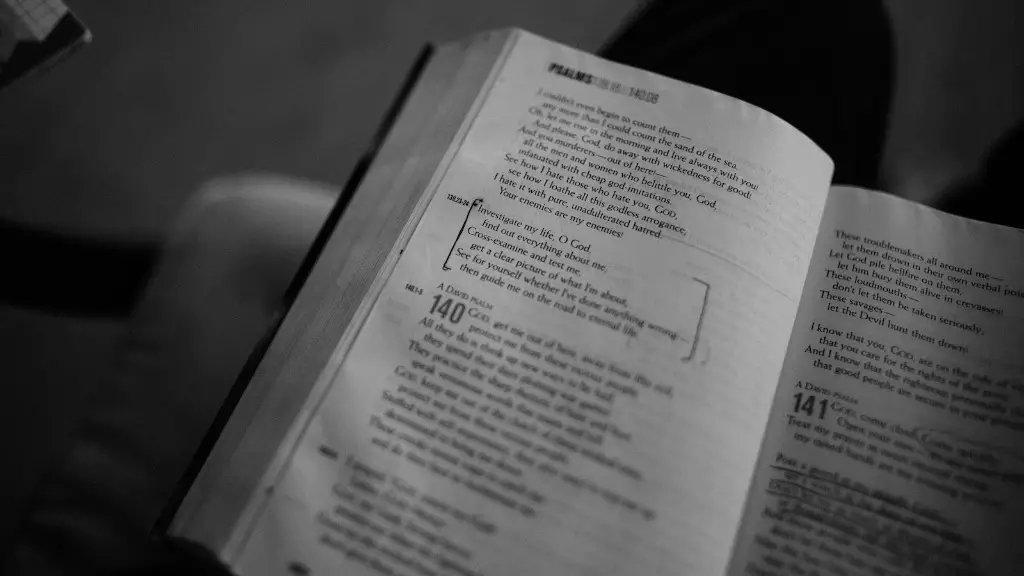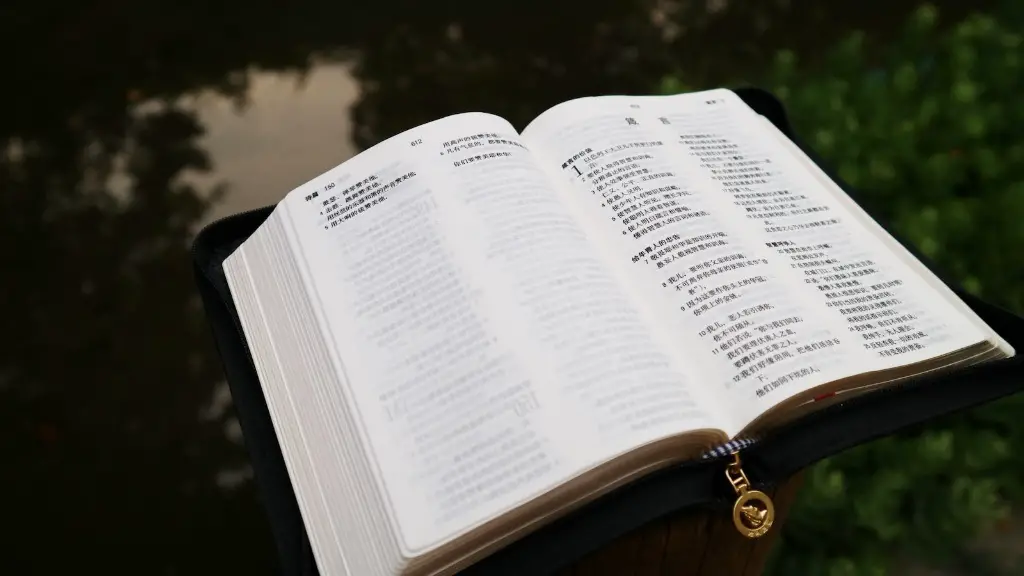What is Jubilee in the Bible?
The word ‘Jubilee’ appears in the Bible a total of 28 times, each of which is in relation to the Year of Jubilee. This originated from the first five books of the Old Testament, where its concept was introduced in the Book of Leviticus in the Bible. To gain an understanding of the Year of Jubilee, it is important to look into the context of this concept and its application to the modern world.
The Year of Jubilee was described as a fiftieth year, where certain laws of liberation applied, as stated in Leviticus 25:10: “Consecrate the fiftieth year and proclaim liberty throughout the land to all its inhabitants. It shall be a jubilee for you; each one of you is to return to his family property and each to his own clan”. During the Year of Jubilee, slaves were freed from servitude, debts were cancelled, land returned to its original tribe, and one’s ability to participate in affairs of the community was restored. It also saw a cancellation of all taxes, which led to a period of economic renewal and celebrations.
The concept of Jubilee has been taken up by many religious associations, with the Catholic Church recognizing it in their Jubilee Years. In modern times, the Year of Jubilee represents the respect of religious freedom and solidarity of God’s people, no matter what their faith. It has been celebrated as a special time of thanksgiving, with many churches and other religious organizations organizing their own special events, such as enhanced prayer services, fundraising projects, and other charitable works. Jubilee also offers an opportunity to reflect on the Christian faith and consider how we can apply its teachings in our own lives.
In addition, the concept of Jubilee has been taken up by many non-religious organizations. As part of a campaign for environmental responsibility, many environmentalist groups utilize the concept of Jubilee as a way to help communities become more sustainable by, among other things, eliminating waste, reducing air pollution, and creating sustainable programs for the long-term use of resources. Other, larger non-religious organizations like the United Nations have also turned to the concept of Jubilee as a way to foster peace and stability around the world, such as offering amnesty to refugees and other people in crisis, or by initiating a program of debt relief to developing countries.
The concept of Jubilee is an ancient tradition that continues to carry a powerful spiritual and social significance. It offers hope to those who find themselves in vulnerable situations by recognizing and respecting religious freedom, promoting economic and environmental justice, and fostering a sense of community. There is much to learn from this concept and the way it has been applied and passed on over generations.
Jubilee in Context to Other Festivals
The festivals of the Jews were developed in two main categories. These were the mandated festivals, as stipulated in the Torah and as ordained by Moses at Mt Sinai, and the Rabbinical, which were festivals that had developed over time from the opinions of the Jewish scholars. The mandated festivals were Passover, Shavuot, and Sukkot, while the Rabbinical festivals included Hanukkah, Purim, and Lag B’Omer. Of all the festivals, only Jubilee found a place in the mandated category.
The Year of Jubilee was set to fall once every fifty years. In other words, seven Sabbatical cycles were required for the jubilee to occur. This cycle, known as Shemittah, was based on a seven-year cycle, in which the land was to lay fallow every seventh year. This mandate was specific, not only for the Jews but for all the other nations in the area as well. It served as a reminder that all the earth and its inhabitants belong to God, and all should be respected accordingly.
Jubilee also served as a reminder that all should have freedom, with slaves and debtors who were oppressed freed. It was also a time of celebration, which makes it similar to some of the other mandated festivals, such as Passover and Shavuot, in the joy that it brought. The sense of community created by the festival was most evident on Yom Kippur, which is the holiest day of the year, when all Jews attend synagogue together as one family.
The similarities between the festivals of Jubilee, Passover, and Shavuot can be seen in the sense of freedom and redemption they both share. However, the key difference between these two is the duration of the celebration, with the celebration at Jubilee lasting for an entire year, and those of the other festivals lasting only for a day or two.
Jubilee in Modern Times
The modern celebration of Jubilee does not necessarily match the biblical mandate, as some of the other commandments of Shemittah have also been relaxed in observance of the modern world. Nonetheless, Jubilee remains an important celebration in both the Christian and Jewish religions. For Christians, it serves as a reminder of the fact that Christ has freed us from our own slavery, while Jewish believers remember the importance of justice and freedom.
In terms of practical application, modern celebrations of Jubilee have tended to focus on invoking social justice and fighting poverty. Events such as Jubilee USA have focused on the amelioration of third-world debt and establishing fair trade practices, while other organizations utilize the concept of Jubilee as a way to promote ecological sustainability.
The concept of Jubilee has even been adopted by the United Nations, which recognizes the importance of debt relief and other types of economic support in its efforts to foster global peace. Additionally, the Catholic Church has adopted the Jubilee celebration, opening the door for reconciliation and spiritual renewal during special Jubilee years.
Today, Jubilee serves as a significant reminder of the power of community and fairness, which helps to break down national and religious boundaries in pursuit of a more just and equitable society. It is also a reminder of the need for sustainability and that no person is above another for any reason.
The Symbolism of Jubilee
Jubilee can also be seen as a symbolic celebration, which identifies the need to take time off from our day-to-day lives to properly give thanks and praise the Lord. Additionally, it serves as a reminder that there needs to be a call to justice and mercy when tending to matters of the heart, as well as our obligations to God and one another. It is therefore a reminder of the need to be mindful of our actions and to recognize the power of divine guidance in our lives.
The concept of Jubilee is particularly important for those who may have broken relationships or property to reach a state of restoration. Jubilee is a sign of hope for those in dire straits, which allows individuals and families to come together and work towards a shared peaceful resolution. The cost of freedom may be great, but through Jubilee, those costs can be reduced.
Looking at the concept of Jubilee from the spiritual perspective, it is a call for us to slow down, appreciate God’s grace and mercy, and recognize that we are all His children. It is a reminder that all are equal in His eyes and we are to respect each other and show kindness in every interaction. This is especially relevant in an age of increased inequality, discrimination, and social unrest.
The Impact of Jubilee in Other Cultures
It is fascinating to note that while the concept of Jubilee has been primarily associated with the Jewish and Christian religions, the concept has had, and continues to have, a similar form among many other cultures, including Hindus, Islamic, Chinese, and African societies. These cultures all have versions of what is essentially the same concept: a periodic suspension or reversal of social or economic obligations and the resulting celebration that follows.
For example, in traditional Chinese culture, Jubilee is referred to as the Grand Money Collateral, which is a type of celebration held every three years in certain provinces. During this celebration, locals, many of whom are farmers and artisans, are exempted from their debts and allowed to go without money in a symbolic gesture of goodwill.
In African culture, a similar concept exists which is known as Emomali, or Humili, which is a period of remission of debts and other obligations. This practice is typically carried out during festive ceremonies, where those with outstanding debts have their debts forgiven and are allowed to start the next year fresh, in a gesture of forgiveness, unity, and social harmony.
Despite having such different names and being celebrated for different reasons, the concept of Jubilee has both ancient and modern roots in all these cultures. This further strengthens the concept of Jubilee as a reminder of the importance of forgiveness and a commitment to a peaceful and just society.
Conclusion
No matter how you look at it, the concept of Jubilee is a powerful one that has been carried over from the ancient Jewish people to the present day. It has been used by numerous spiritual and non-spiritual organizations, giving hope to those who find themselves in vulnerable situations by recognizing and respecting religious freedom, promoting economic and environmental justice, and fostering a sense of community. Whether it takes the form of a rabbinical festival or a government-sponsored relief program, the concept certainly has its place in our society.





